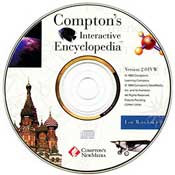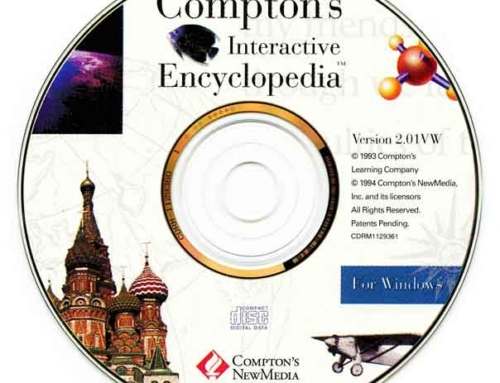Subchapters
- A Milestone in Evolution of the Human/Machine Interface
- The Proper Study of Mankind
- The Encyclopædia Britannica First Edition
- The Encyclopedist’s Art
- William Benton, EB Owner and Publisher
- Robert Hutchins, University of Chicago President
- Mortimer Adler, Philosopher
- Charles Van Doren, EB Editorial Vice President
- Reinventing the Encyclopedia in Electronic Form
- Solving the PC Data Storage Problem
- Patricia Wier, EB, Marvin Minsky, MIT, and Alan Kay
- Peter Norton Takes Britannica into the Software Business
- Harold Kester, SmarTrieve, and Compton’s Encyclopedia
- Dr. Stanley Frank, Vice President, Development
- Compton’s Patent R.I.P.—An Afterthought
- A Look Back from Encyclopaedia Britannica
Mortimer Adler, Philosopher
Mortimer J. Adler, a precocious student (and later critic) of philosopher John Dewey at Columbia University, had also been attracted to the University of Chicago in the 1930s. Hutchins had found appointments for him in philosophy and psychology and at the University of Chicago Law School.
Adler was an evangelist for a broad, liberal education and a strident critic of the disciplinary specialization just then coming to fruition at American universities.
His and Hutchins’s impassioned arguments for an undergraduate curriculum based on the classic texts of Western civilization touched off years of stimulating, though acrimonious, debate at the University in the 1930s.
Adler’s belief in exposing undergraduates to the classics fell in with Hutchins’ view that, “What the nation needs is more educated BAs and fewer ignorant PhDs.”
Wags on the Midway soon were quoted reciting, “There is no God but Adler, and Hutchins is his Prophet.” Students also were heard singing an old New Year’s standard with a new refrain, “Should auld Aquinas be forgot.”
Adler later helped Hutchins complete editorial work on Britannica’s unique 54-volume canon of Western intellectual history, Great Books of the Western World. The set was published in 1952, the same year Adler left the University of Chicago.
Notwithstanding its intellectual gravitas covering the centuries (from Homer, Aristotle, and Aquinas to Freud), Britannica sold “Benton’s Folly” to ordinary Americans with great success.
By the 1950s, the 14th Edition of Encyclopædia Britannica was showing its age. Benton, by this time, had also been an Assistant Secretary of State (he thought up the Voice of America), and a United States Senator (a Democrat from Connecticut and the first to denounce Sen. Joe McCarthy).
After Hutchins left the University of Chicago, he headed the Fund for the Republic think tank, established with help from the Ford Foundation. The Fund had helped finance Adler’s Institute for Philosophical Research in San Francisco.
When Benton was assembling his editorial team to prepare the groundwork for the 15th Edition, he found Adler in San Francisco, where he was finishing his two-volume work, The Idea of Freedom (1958-61).
In December 1962, as Adler celebrated his 60th birthday, his Institute was going nowhere, his marriage had failed, and he was in debt.
Thus, he was in a receptive mood when William Benton reached out:
Come back to Chicago, Mortimer, and help me make a new and greater Encyclopædia Britannica. I’ll not only pay you a princely salary and fund the Institute, but I also support a series of Benton Lectures at The University of Chicago that can be the first step towards a new career for you—and an education for them.
Accepting Benton’s offer to pay him $100,000 a year for life was the smartest thing Mortimer ever did, particularly given the fact that he lived to be 98. Initially when Mortimer returned to Chicago, he set up his own separate office and began to produce standalone books for Britannica. To help, he hired Charles Van Doren, then a former academic very much in need of a job. Robert McHenry, a young EB editor, was seconded to Mortimer’s operation by Britannica and worked there for Van Doren for a number of years.
McHenry would later serve as EB’s Editor-in-Chief in the 1990s. When I recently wrote him asking about Mortimer’s later role in the development of Encyclopaedia Britannica’s 15th Edition, his critique of Adler was a sharp one:
The design and planning of the 15th Edition were in the hands of Mortimer. As Benton’s Charon it could not have been otherwise. It is doubtful whether Benton or any of the managerial class at EB had ever seriously considered what an encyclopedia is or ought to be. Mortimer had one quite definite idea: it should be a tool for educating the user, not simply informing him. For Mortimer, information — what is the atomic weight of carbon? or the capital of South Dakota? — was mostly trivial stuff, no quantity of which amounted to knowledge, to say nothing of wisdom. He imagined the ideal encyclopedia as a synopsis of what the most knowledgeable persons in the traditional academic fields believe they know of the world. And it should be so organized as to lead the user systematically from narrower to broader matters, from simpler to more complex ideas. The goal should be to enable the user to approach an understanding of what Matthew Arnold called “the best that has been thought or said.”
Mortimer once surprised a meeting of the editors of EB by declaring “I do not consider myself a well-informed person, and I do not wish to be one.” Once the shock passed, he explained “I strive to be an educated person,” and it was his firm belief that such should be every person’s goal. As the Great Books of the Western World was a primary means to that end, so the Britannica should be.
The problem in McHenry’s view was that almost no one used an encyclopedia in that way, “Most everyone looked up atomic weights or capitals. Some might be led on to investigate the history of how atomic weight came to be conceived of and measured or who was “Pierre”? The resultant disaster in McHenry’s thinking was that when the 30-volume, 15th Edition was published in 1974, it was wrongly structured. Short articles were in the Micropaedia volumes, with the articles in this section containing cross references to the long articles in the encyclopedia’s Macropaedia section. A one-volume Propaedia served as an outline of the knowledge in the whole set. It didn’t take long internally at EB for the lack of a standalone index to be seen as a fundamental error of design, and a great impediment to sales in the important educational market. The necessary cure was a major and expensive restructuring of the 15th Edition into 32 volumes, two of which were the long-missing A to Z index volumes. The makeover took over a decade and was not published until 1985, the year I interviewed for the job of General Counsel of EB.










